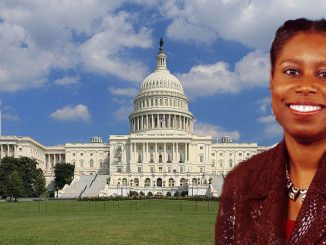By Richard Walker
The political knives are out for Bernie Sanders, who has a chance to become America’s first Jewish president. Surprisingly, those sharpening the cutlery are the leaders of the American Israel Public Affairs Committee (AIPAC), the powerful Zionist lobbying machine in Washington, D.C.
AIPAC has already run Facebook ads attacking the Independent Vermont senator, fearing that if he were in the White House he would carry out his threat to suspend $3.8 billion in annual military aid to Israel in order to force it to the negotiating table with the Palestinians. He might also reverse President Donald Trump’s decision to move the U.S. embassy from Tel Aviv to Jerusalem. Sanders has already made it clear that he has no time for Israeli Prime Minister Benjamin Netanyahu, or for his policies, and that he wants a two-state solution.
If Israel is worried about a Sanders presidency, the Saudis, with whom Israel has formed a close relationship, have a lot to fear, too. Sanders has already announced that he does not regard the Saudis as allies and still holds them accountable for not only 9/11 but also for fomenting terror by building madrassahs across the globe to further Wahhabism, their extreme brand of Islam.
The Israeli newspaper Ha’aretz agrees, pointing out in a Feb. 17 headline that “AIPAC Must Stop Sanders—at All Costs.” Ha’aretz says that AIPAC has “no choice” but to become a “pro-Trump caucus,” as opposed to a “bipartisan pro-Israel lobby.” But the cost for AIPAC may be much more than the massive financial resources it could bring to bear attacking Sanders. It could split what has been a united pro-Israel front within the Democrat Party and among Independents. AIPAC had to apologize recently for Facebook ads attacking Sanders and Democrat congresswomen, in which it said that the congresswomen were more sinister and dangerous than ISIS. It also ran ads against Sanders last year, resulting in widespread outrage in Democrat circles, and among liberal American Jewish organizations.
Sanders is not an easy target for Zionists. He says he is not a practicing Jew, but that his beliefs were shaped by his Jewish upbringing. He spent time in a Kibbutz as a boy. He claims his father’s family was “lost” during the Holocaust. He has consistently advocated a policy that urges respect for Palestinians, an end to the occupation of Gaza and the West Bank, and for some of the annual military largesse to Israel to be diverted to humanitarian aid in Gaza.
He has cleverly provided a nuanced position on Israel that has been defined by his unquestioned support for its existence. That has made it difficult for AIPAC and Netanyahu’s extreme right movement in Israel to paint him as the American Jeremy Corbyn, the British Labour Party leader who suffered a landslide loss to the Conservative Party in 2019. Some believe Corbyn’s downfall, and that of his party, was due to their branding as “anti-Semites” by the pro-Israel lobby in Britain. Unlike British Labour, the left in the U.S. has consistently backed partisan support for Israel, especially on Capitol Hill, whereas the British Labour Party has a history of being deeply antagonistic toward Israel and fervently pro-Palestinian. Therefore, comparisons between Sanders and Corbyn miss the fact that it is hard to portray Sanders as an anti-Semite.

In contrast to Corbyn, Sanders does not personally support the Boycott, Divestment, Sanctions (BDS) movement that advocates the boycott of Israeli products. At the same time, Sanders has made it clear he will never vote for congressional legislation that limits Americans using their constitutional right to advocate for BDS.
What is striking about Sanders is that his enemies within AIPAC have difficulty defining him. He cleverly navigates the Israel debate that has trapped and hurt many other politicians. And his positions on international issues often mirror those of President Trump. They both opposed the Iraq interventions and have called for an end to all foreign wars. It is perhaps his threat to punish Israel financially were he to become president that has scared AIPAC and its masters in Tel Aviv. They see him as a threat to the U.S.-Israel relationship as defined by President Trump. In 2017, he told online news outfit “The Intercept” that the U.S. has to be more even-handed in dealing with the Palestinians, and presently it is not.
Many of the younger voters who support Sanders share his misgivings about Israel, and they could become embittered toward AIPAC and Israel. This could ultimately weaken the Zionist lobbying monolith.
Richard Walker is the nom de plume of a former New York mainstream news producer who grew tired of seeing his articles censored by his bosses.





